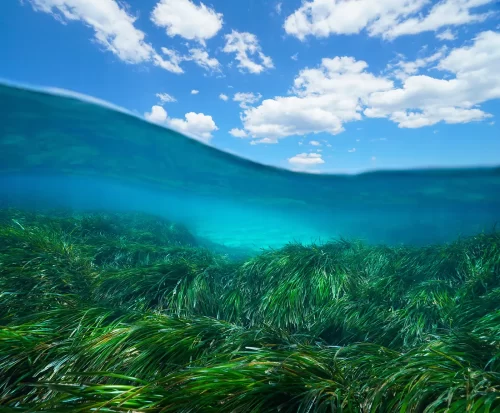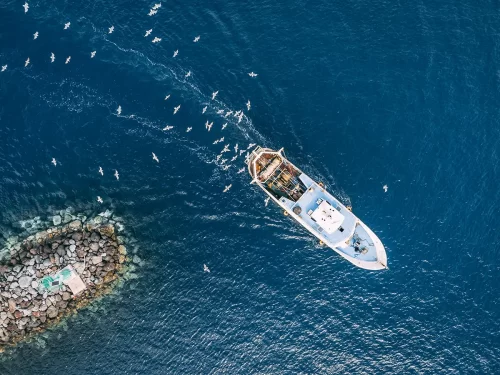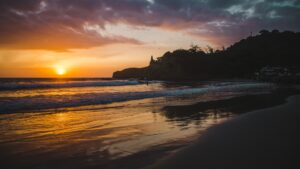
@ Enric Sala / National Geographic
The Issue
The Revillagigedo archipelago—a group of remote volcanic islands about 400 kilometers (250 miles) off the coast of Baja California, Mexico—is a unique environment rich in biodiversity. The chain of islands, made up of Socorro, Clarión, San Benedicto, and Roca Partida, are part of a larger formation of seamounts that help generate an upwelling of deep sea nutrients that support a wide array of underwater life.
But plans to create a no-take marine reserve around this UNESCO World Heritage site were challenged by fishing interests. The Mexican tuna industry claimed that banning fishing near the islands would reduce the local tuna harvest by 20 percent, costing the economy thousands of jobs and causing the price of tuna to skyrocket.
Our Work
By using Global Fishing Watch data, our friends at National Geographic’s Pristine Seas project were able to rebut the fishing industry’s claims. Our vessel tracking data showed that nearly three-quarters of tuna caught by Mexican vessels was caught in international waters—and less than 4 percent was caught near Revillagigedo’s waters.
This research provided critical in enabling the Mexican government to make an informed decision about the future of Revillagigedo. In 2017, the archipelago was officially designated as a 148,087 square kilometer (57,177 square miles) national park, making it the largest marine reserve in North America. Fishing and other extractive activities are prohibited both on and near the islands, helping to preserve this pristine ecosystem and its unique biodiversity.
“Global Fishing Watch allowed us to see where different fleets were fishing. So when the Mexican tuna fishing industry said, ‘We do most of our fishing here,’ we had the data to prove they didn’t. Using Global Fishing Watch was a game-changer for us because, for the first time, we were able to bring transparent data to the negotiating table.”
Enric Sala,Pristine Seas

